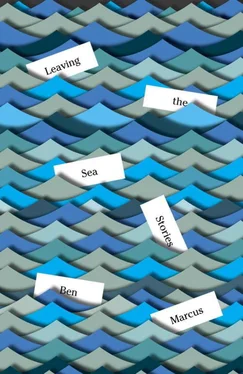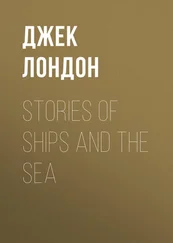More laughs. George was scribbling notes, as if this was the most helpful critique he’d ever had. But what could he possibly be writing? Fleming wondered. Story is no better than description of a teacup?
“Okay,” said Fleming, looking at George across the table, determined not to mention the French New Novel, which by now had grown quite forgotten and old, and perhaps should be renamed the French Old Novel, or the French novel that recently died but that once mattered to a few people he knew, themselves also old. “But maybe instead of diagnosing what it is and isn’t, let’s try to talk about the experience of reading it, and maybe see if that discussion might be of use to George.”
This the class didn’t much want to do, and Fleming carried the weight of the thing. Frankly it was George’s fault. He had written some passable description, at least sort of, and he’d made the whole thing pretty moody, but, it was true, nothing happened . Could this, Fleming ventured, be the descriptive intermission in a story that hasn’t been written yet? Perhaps we are only looking at the thigh of the beast. We can say nice thigh, but beyond that we are in the dark. His metaphor was out of hand, running amok. Maybe they hadn’t noticed.
Britt alone picked up on Fleming’s desperation, while George transcribed the discussion ever more furiously, and she tried to help, reminding everyone of the inherent drama of landscapes and how charged they could be, how story resides in the land—had she really just said that?—and our best stories come from our relationship to nature.
“That’s your opinion,” snapped Shay, suddenly bothered.
Britt didn’t flinch. “Right,” she agreed, cheerfully. “Am I meant to be representing someone else’s opinion?”
“Do what you want,” said Shay, apparently not sure if Britt’s response was an insult.
Carl made a cat sound, clawing the air, hissing.
“Oh, shit,” said Rory, and he suddenly seemed at a loss with no friends around to high-five.
George raised his hand, usually taboo for the writer, but Fleming seized on it. Saved by the sad sack.
“This is really incredible,” said George. “Thank you, everyone. I really appreciate it.”
So this was George’s shtick, thought Fleming. He was a professional thanker.
“I guess,” said George, “I have one question for you all, given the remarks.”
“Okay, shoot.”
“If this was set in a city, instead of out west,” asked George, hopefully, “do people think that would make it better?”
Britt followed Fleming out after class. He wanted to stand in the sunshine, look at the sea, maybe let the salty air purge his face from the worrisome things he’d said, and lash him for the helpful things he hadn’t.
They were at the railing and the boat was really hauling ass. But when he didn’t look at the water they suddenly seemed not to be moving. Behind them a terrific whooping arose from the pool, where kids had lined up at the slide, zooming down the bright chute into the water. How amazing if he could get an hour alone with that pool, guarded from spectators, streaking down the slide, exploding against the water, only to pull himself back up the ladder to do it again.
“Why’d you start with two men today?” Britt asked.
“What do you mean?” Dear God, what did she mean?
“The class is half women and you could have discussed one of each today, a man and a woman. Wouldn’t that have been more fair?”
He had no answer. He’d given no thought to this.
“It’ll balance out,” he said, trying not to look at her.
Britt struck a puzzled look. “It seems to indicate clear bias on your part, to let two men go first, and I don’t see how that won’t disrupt the balance of the class going forward, if the women collectively feel that you do not think highly of their work. So much so that you’ve delayed its discussion in favor of the work of two men who hardly seem— in my opinion —talented enough to have gone first. I just wanted to pick your brain about that.”
Very crafty, little Britt. Let’s solve the problem of your bias together, you old, sexless fossil. I care about you and want to help. Now drink this poison and lie back while I chop at your expired genitalia. That’s good. Even though you’re going to jail, I still care for you.
Britt had pale hair, wore no makeup, and seemed so at ease with him it was disturbing, like one of those precocious children who is only friends with adults. Even Erin adopted a more formal tone than this, seemed a stranger to him sometimes when they spoke. He liked Britt. Clearly the feeling wasn’t mutual.
“Look,” he tried to explain, though he had no explanation. “Going first, as you call it, is no big deal. Certainly it’s not a privilege. I’d say it sucks to go first, actually, because no one knows each other, we have no rapport, and we’re not at our best, critically, yet. We haven’t vibed as a group. People who go first are at a disadvantage, actually.”
This sort of sounded half-believable to him as he said it.
Britt took this in, winching her eyebrows as she formulated her rebuttal. He braced himself.
“So today, if I’m hearing you correctly, you were punishing Timothy and George by making them go first? You deliberately put them at a disadvantage? Perhaps I misread your bias. Maybe it’s men you have a problem with. I will say reverse discrimination is no less worrisome. It is, arguably, more hidden, more sinister.”
“Sinister?” He sighed, starting to protest, but Britt bent over, laughing.
“Oh my God, I totally had you!” she shrieked. “You totally believed me! I wish you could see your face!”
Fleming had seen his own face enough times, in this life and the next one.
Britt threw herself into him, spasming with laughter, claiming she really had him going.
“What?” he said, quietly, trying to push her away, even though the contact felt good. “Which part was a joke?”
Britt grabbed his arm, tugging down on him while she recovered from her fit of laughter. “You are hilarious,” she shouted. “Oh my God, you are so funny!”
She kept crashing into him as if she couldn’t stand on her own. Was he meant to hold her up? People would be watching. This no longer felt good.
“You thought I was one of those insane feminists,” she gasped. “You actually thought that!”
“Why wouldn’t I?” he snapped. “Not insane. Maybe it was a reasonable point. Am I not supposed to believe what you say?”
Just then Helen found them, walking up with a sly smile on her face.
“Hey, you two,” she said. “What are you guys up to?”
You two? You two? And here was Britt pulling on him and laughing as if they were together. He extricated himself, again, but Britt threw an arm around him and told Helen it was nothing, a silly joke, and they were just hanging out watching the ocean go by. Wasn’t the ocean amazing?
Helen looked out at the water, frowned, and carefully agreed that it was. It seemed she was on the fence about it. This ocean, she told them, reminded her of a story, in fact, a very long story, slowly told, that got hung up in a complicated preamble about the first time she had told the story and who was there and why it had been a sort of hard story to tell. Apparently it still was. The old story about a story trick. An act of sheer violence to its audience. Fleming wanted to turn to dust.
He begged off, saying that he needed to go work, which wasn’t true. He had no intention of doing any writing on this boat, but maybe there was something good on cable. Or something bad on cable. Or maybe the wall in his room was doing some interesting shit that he could stare at while he held his balls. Anyway it was clear that if he wanted to escape his students—yes, yes, he wanted to—about the only place he could do that was in his room. But as he left the pool area he heard Britt shouting his name. She caught up, breathless. It was just that she was curious what room he was in, on what level, because such-and-such was her room number, on the such-and-such level, you know, just in case, and was he going to be around at the bar later?
Читать дальше












